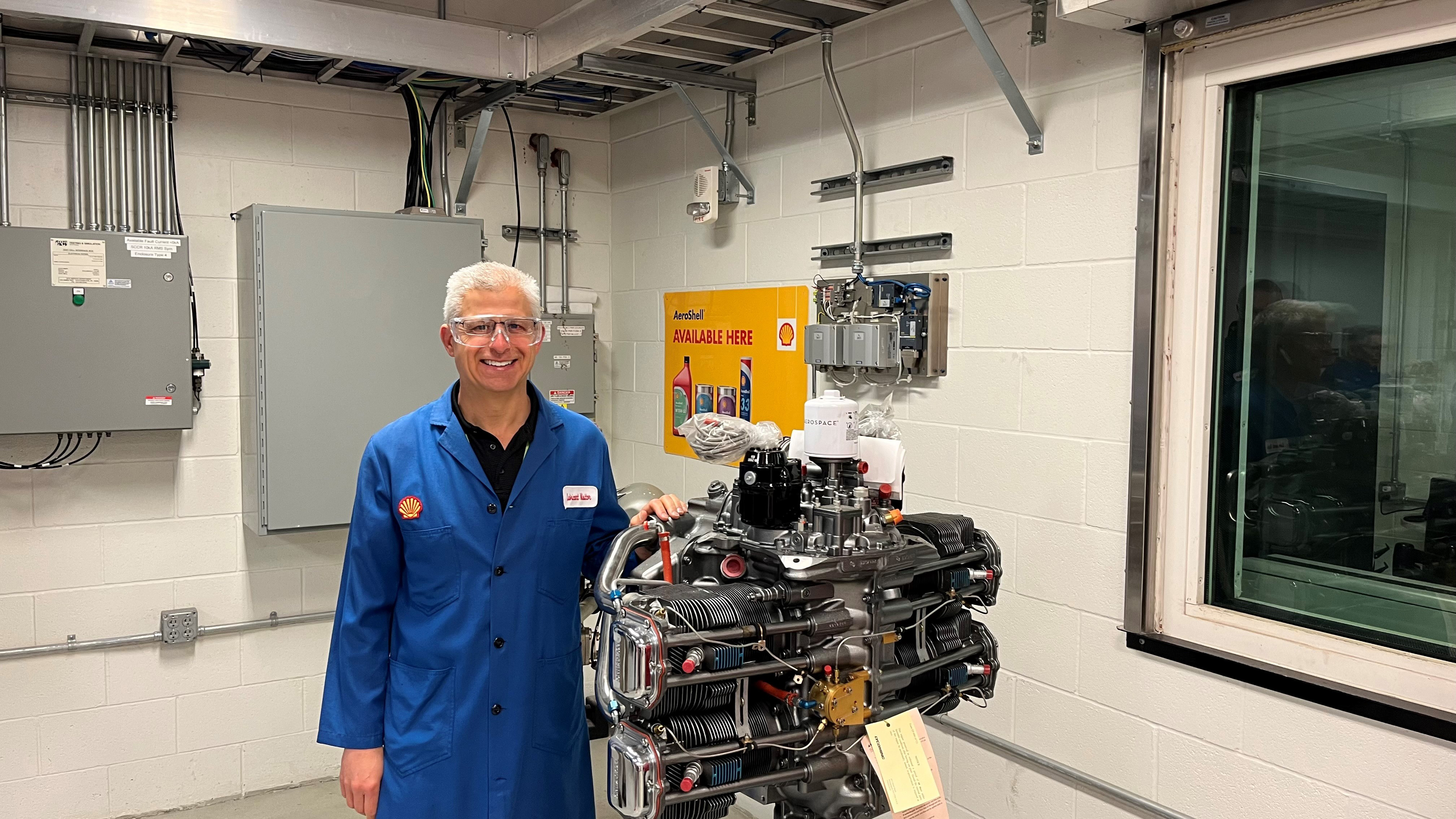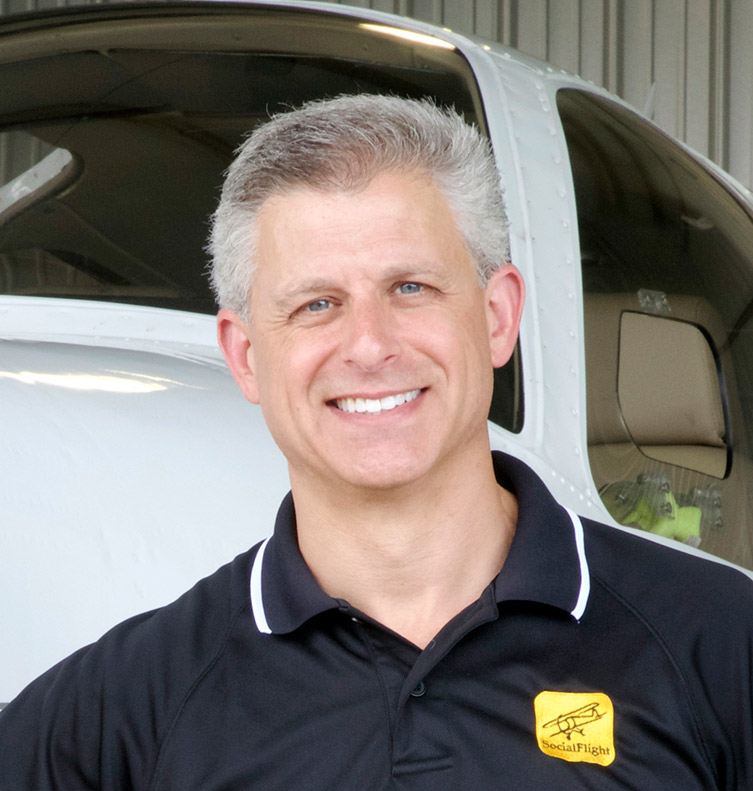Aircraft Maintenance: AeroShell educates the experts
AeroShell recently hosted its first ever “Aviation Technology Summit” at the Shell Technology Center in Houston. It was a remarkable forum that “educated the educators” about the latest oil and grease technology, so that we can teach others how to best maintain and protect general aviation aircraft.
According to the invitation, the goal was to “invite a small number of folks who are respected voices in aviation, and particularly in the GA space, for an opportunity to see a bit behind the scenes how we formulate and test our oils, greases, and fluids, as well as an opportunity to have a chance to dive into details about some of our products.”
We began with a session on aviation oils, which included a deep dive into understanding the oil base stocks used to make the final products that we use to lubricate our engines. General terms such as mineral, semisynthetic, and full synthetic reference the base stock from which a given product is made. Behind those terms lie specific groupings that form a scale of increasing quality, purity, and performance. To understand how oil base stocks are grouped, we need to define a few terms. Saturates, in terms of oil base stock, represent the good stuff. This is the amount of base oil content that directly performs the job of lubricating and protecting your engine. Viscosity defines a fluid's resistance to flow. Viscosity index, on the other hand, is the measure of the oil’s change in flow relative to temperature. A higher viscosity index is desirable because it means that an oil will maintain its flow properties over a greater temperature range. Sulfur contributes to corrosion, deposits, and emissions. So, the less sulfur in your oil, the better. Bottom line: The best oil base stocks are high in saturates, have a high viscosity index, and are low in sulfur.
Group I oils have been processed using a solvent wash to reduce sulfur content and create a base oil with quantities of saturated compounds up to 90 percent and with greater than 0.03 percent of sulfur. Group II oils have been further processed including catalytic de-waxing, resulting in a saturated compounds level of greater than 90 percent and sulfur levels below 0.03 percent. Both Group I and Group II base oils are considered mineral oils; straight-weight AeroShell W80 and W100 oils are made from Group I base stock.
Moving up the scale, we get to Group III. Group III oils require advanced refining methods to produce even higher performing oils, including viscosity indexes greater than 120. AeroShell also produces base oils from natural gas using a gas-to-liquids (GTL) process. These oils lie in the middle of mineral versus synthetic definitions, but can be considered synthetic if made purely from GTL or similar oils, or semisynthetic if made from a combination of oils, but still resulting in the higher-performing final product. Group IV oils, made from other base stocks are always considered full synthetic. AeroShell 15W50 is considered a semisynthetic oil because it contains both mineral and GTL base stock oil in the final product. The only full synthetic aviation oil was Mobil AV-1, which was removed from the market years ago due to issues managing the lead from 100LL. Once leaded avgas is a thing of the past, we may very well see a return of full synthetic aviation oil because of its superior overall performance.
In addition to the base oil content, viscosity modifiers can be used to create multi-weight oils, and other compounds can be added to reduce friction and protect engines from corrosion (such as in AeroShell W80/W100 Plus).

As part of our visit, we were also treated to a tour of the Shell Technology Center, which included a visit to AeroShell’s advanced engine test facility and oil performance testing labs, as well as the opportunity to witness a live “cold flow test” demonstrating the different flow properties of oils, including how it degrades over time in service. It was a stark reminder of how important regular oil changes are to the health of our engines.
We also took a deep dive into aviation greases. I’ll go into grease technology in more detail in a future article, but suffice it to say that using the correct grease in the appropriate application is more important than people might think. This is especially true when dealing with clay-based greases (AeroShell Grease 5/6/7/22) versus lithium-based greases (AeroShell Grease 33/58). More to come on the fascinating world of grease!
The remainder of our sessions included a fascinating discussion of aircraft fuels and the different efforts toward industrywide availability of unleaded fuel, as well as a presentation by Steven Boggess of RAM Aircraft on what the company has learned about engine preservation and corrosion during decades of experience overhauling aircraft engines.
In a world full of online meetings, the summit was a reminder of how much can be accomplished when you get together in person to learn, share ideas, and form personal bonds. Special thanks to Julia Kluge, Timmy Chui, Piotr Gawecki, Andrew Dobbins, Andrew Mehring, Felix Ebentreich, and the rest of the AeroShell team for hosting the event. By nearly every measure, it was the beginning of a great tradition that sent attendees home with new knowledge to share with our community. I look forward to doing it again next year, and to “paying it forward” by sharing more of what I learned in future articles. Until next time, I hope you and your families remain safe and healthy, and I wish you blue skies.




